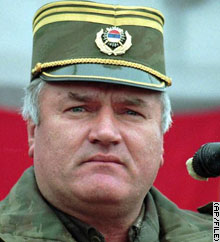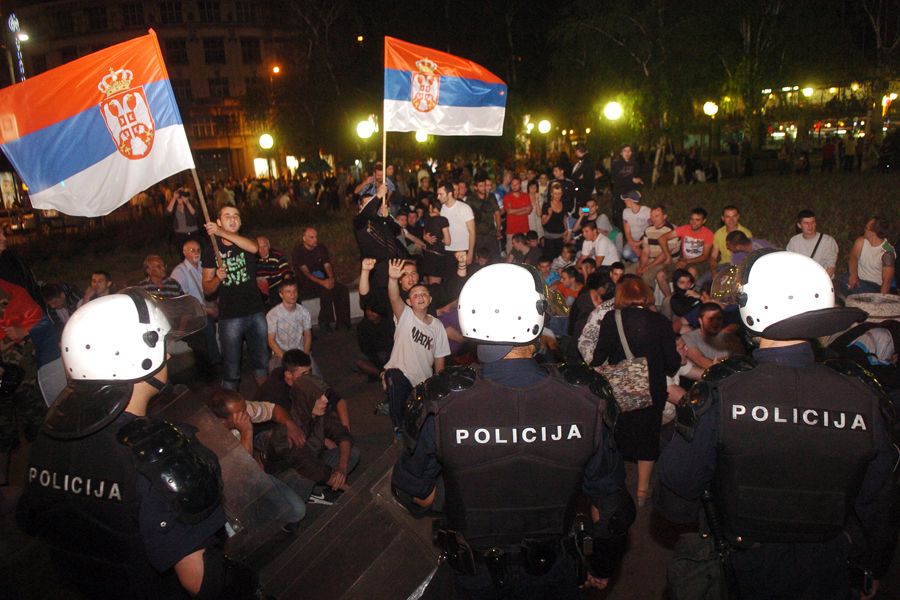Mladic arrest delights, shocks and surprises Serbia
|
|
|
Ratko Mladic |
The news of the capture of Ratko Mladic, the Bosnian Serb commander wanted for war crimes, was received by delight, shock and surprise in Serbia.
For those in government and political parties with a pro-EU orientation, the prospect of removing the constant impediment of meeting the International Criminal Tribunal for the former Yugoslavia (ICTY) requirements has all but fallen away.
Cedomir Jovanovic, leader of the Liberal Democratic Party (LDP) in Serbia, congratulated Serbian President Boris Tadic for bringing the process of reconciliation in region ever closer, reported the Serbian daily 'Blic.'
Jovanovic said Tadic had continued the task initiated by assassinated Serbian Prime Minister Zoran Djindjic with the extradition of former Serbian President Slobodan Milosevic to the International Criminal Tribunal for the former Yugoslavia in 2001.
|
|
|
Supporters of Ratko Mladic, the former commander of the Bosnian Serb Army, gathered in central Belgrade to protest his arrest on Thursday. |
"This arrest means we have met the huge responsibilities which we have as a country to ourselves, to our neighbors and the future of Serbia," said Jovanovic. "Bringing Mladic to justice is not just satisfaction to the victims... but also an opportunity for our society to remove a heavy weight under which we have lived more than 15 years."
Mladic was charged with genocide and crimes against humanity by the ICTY in The Hague, most notably for the summary execution of captured Bosnian Muslim soldiers after the fall of the UN protected zone of Srebrenica in 1995. He was the most high-profile fugitive still at large, dating back to the civil conflicts that erupted during the breakup of the former Yugoslavia in the 1990s. He had been in hiding since 1996.
Jovanovic added that a war crimes trial would strip away Mladic ' s heroic facade, which anti-Hague and anti-European Union political forces in Serbia maintain.
"By dismantling the nature and the mechanism of political crimes, the majority of people in Serbia will finally get a real opportunity to realize that Mladic is not our hero, but our national disgrace," said Jovanovic.
However, Tomislav Nikolic, leader of Serbia's opposition Serbian Progressive Party (SNS) told the Serbian news agency Beta that he was surprised by the arrest and that its timing opens more questions.
"Who was it who saw that man yesterday, and recognized him?" asked Nikolic. "Is it perhaps that Serbia knew the entire time the location of Ratko Mladic? What factor determined that he would be arrested today?"
Nikolic, whose party has a strong nationalistic following, said that Tadic owed the Serbian people an explanation for the arrest of Mladic, who although vilified by the ICTY was not perceived as a villain domestically.
"The vast majority of Serbian citizens, along with us, do not today know how to react or what the consequences mean for future life in Serbia," said Nikolic.
As for the Mladic family, they are in a state of shock according to family lawyer, Milos Saljic, reported the Bosnian news agency Srna. The family had no forewarning of the arrest, said Saljic.
A year ago the family asked for Mladic to be officially declared dead by a court in Belgrade, explaining they had had no contact with him in seven years and assumed he was dead due to failing health.
 0
0 








